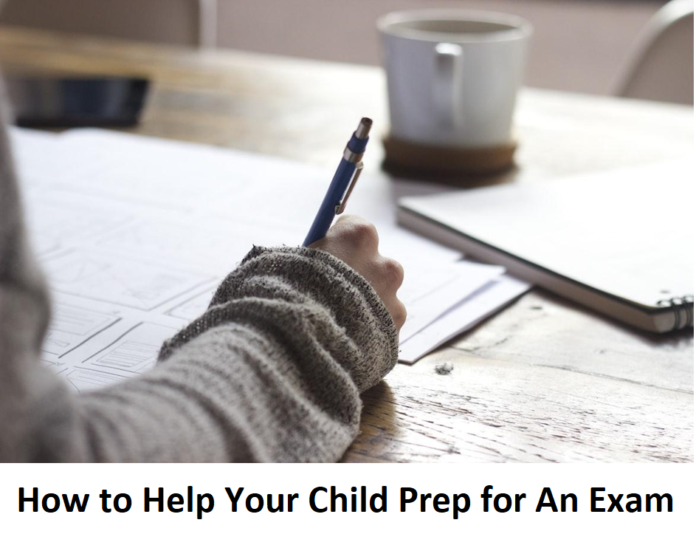Preparing for tests and exams can be stressful situations for both children and parents. Even if your student produces excellent grades on their assignments, the pressure of an exam can make them feel overwhelmed. But, with a bit of careful planning and preparation, you can help make sure your kid is feeling confident heading into their upcoming test or exam.
From taking advantage of organizational tips to becoming more comfortable with the material at hand, here are four smart ways to help your kid prepare for exams.
Set a Study Schedule
Preparing for exams can be a stressful and overwhelming experience for any student, but having a detailed plan with a set study schedule can make all the difference in your child’s learning success.
Setting up a regular schedule allows them to develop study habits that focus their attention on learning material rather than trying to balance competing interests.
During preparation for exams, scheduling appointments with tutors or mentors can provide invaluable guidance and accountability, ensuring that your kid is on track.
Encouraging regular breaks built into the schedule provides downtime so your child can stay energized over the course of their studies.
Without the right strategy and plans, studying for tests can become an overly daunting task, so taking things one step at a time by setting up a well-designed study schedule will go a long way in helping ease exam-related anxieties.
For example, try breaking up the material into smaller chunks and setting deadlines for each section. For example, a weekly schedule might have your student study history on Monday, math on Tuesday, science on Wednesday, and so on.
This allows them to focus their attention fully on one subject at a time rather than trying to juggle multiple topics during the same session.
Plus, having a set schedule helps them to manage their time better and work towards goals that are achievable.
Practice Test Taking Strategies
Preparing for exams can be especially overwhelming during exam season. Teaching them test-taking strategies is one way to help them feel less intimidated.
Taking practice tests before an actual exam can help familiarize kids with the format of different types of tests and develop their functional speed to complete the entire test.
It also encourages active learning, as they have to recall content rather than simply reading it from a book.
Additionally, practicing mock examinations helps boost their confidence as well as reduces anxiety on the day of the real exam.
If your child is struggling to embrace this strategy, try incentivizing them with rewards after completing each test or combine it with fun activities like game nights.
For example, suppose they finish the practice test within a certain amount of time. In that case, you can reward them by taking them to their favorite restaurant or investing in an educational game that is related to the subject.
Plus, you can also emphasize how practice tests are designed to help them prepare and not necessarily as a measure of their performance.
Balance Study with Fun Activities
It’s important to remember that taking breaks between study sessions is okay. Finding balance by engaging in fun activities is a must – not only does it provide a much-needed mental break from learning, and it allows for extra stimulation that can help solidify what is being studied.
With so many things vying for our kids’ attention, parents should foster an environment of self-regulated exploration by encouraging research into fun activities that could aid their learning and help alleviate any built-up stress.
This might look like sending your kid to educational camps, dance classes, or group sports; playing board games at the dining table; or simply taking time outdoors to experience nature.
By taking these steps, you’ll equip your kid with the resources necessary to break down exams into achievable goals while also remaining mentally healthy and happy.
Keep in mind that while studying is important, it’s even more essential to prioritize mental health above all else. Using modules can help provide a good balance between studying and having fun with friends and family; encouraging your kid to take regular breaks; teaching them test-taking strategies; and finding alternative ways for them to learn outside the classroom.
Remember that every child is different, so be sure to tailor your approach to best suit their needs.
Try Different Study Exercises
It is important to encourage your child to try different study exercises that may be more conducive to their learning style.
For instance, if a student dislikes memorization, they might benefit more from designing and creating flashcards, writing summaries in their own words, or making analogies.
Similarly, if the student prefers hands-on activities, they could be better enabled by taking practice tests online and, out loud verbalizing notes or lectures.
Ultimately, experimenting with these various methods of studying can help ensure that your child has exhausted sufficient resources to equip them for success on their exams.
Packed with interactive experiments, fascinating facts, and a sprinkle of fun, the tutorial video provides a dynamic platform for kids to study and explore the captivating realm of science.
Additionally, you can also consider studying in groups as young children often learn better when in the company of their peers.
This strategy is especially useful for complex topics which may be difficult to understand alone, as students can discuss and explain concepts with each other to help one another out.
Be sure to facilitate fun activities like quiz games or ask-and-answer sessions to make it an enjoyable experience.
By taking these steps, you can help your child understand difficult topics more thoroughly and make studying less daunting for them.

Exams can be daunting for any student, but your child’s stress level can be greatly reduced with the right preparation and planning. By planning, creating a study schedule, practicing test-taking strategies, and working on fun activities, you will be helping your child lay solid groundwork for success.
Additionally, allowing them to experiment with different study exercises allows them to engage more deeply, ultimately leading to a better understanding of the material. With all these tools at their disposal, your kid will have all they need to help prepare for exams effectively and efficiently. Good luck!
RELATED TOPIC: Check Out these High Paying Jobs in 2023.




